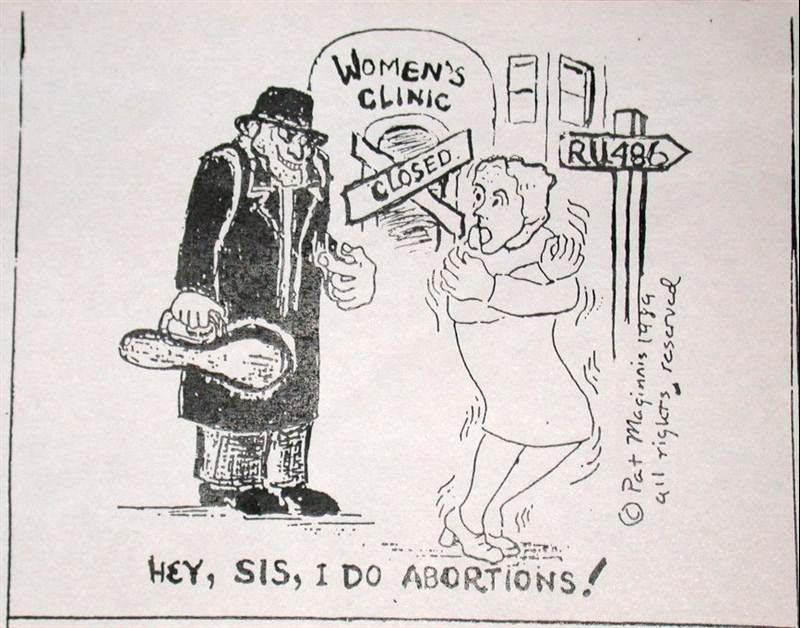|What is RU-486? | The Discovery | The Chemistry |
|The Global Use | RU-486 in US Politics |
| Cultural Controversy in the US | References |
In favor RU-486:
-
Supports see the drug as “safe and easy” which allows for “an at-home, do-it-yourself, private abortion” (Grant, 1991, p. 23).
-
Those who have taken the drug report it as being “gentle, safe and […] less traumatic […than surgical abortions as…] there is no intrusion on the integrity of the body” (Lader, 1991, p. 53).
- Many see RU-486 as free from the aggressive nature of surgery and in this way, almost natural.
- The availability of RU-486 across the US maintains a woman’s privacy concerning their reproduction while remaining relatively free from judgment.
- Both the low cost and widespread availability of RU-486 have freed women from the burden of traveling long distances to find a physician that would perform a surgical abortion which prevented financial difficulties.
- Perhaps most importantly, supporters see RU-486 and its availability as a major step in empowering women with the right to make decisions about their own reproduction and welfare.
In opposition to RU-486:
- Those who are opposed to RU-486 see the drug as a “death pill” which further emphasizes their belief that life begins with conception.
- Critics of RU-486 worry that the pill makes abortion too easy, too accessible and that it could potentially used as birth control method rather than a last resort.
- Those against RU-486 see the pill as a human pesticide and seek to preserve the sanctity of life by preventing its use and availability.
- RU-486 can have negative side effects including uterine contractions, light nausea, diarrhea and general discomfort of even pain. As a result, over half of all users in one case study needed aspirin or a painkiller when using RU-486.
- Critics of RU-486 have also seen the drug as provoking and almost justifying casual and irresponsible sex.




